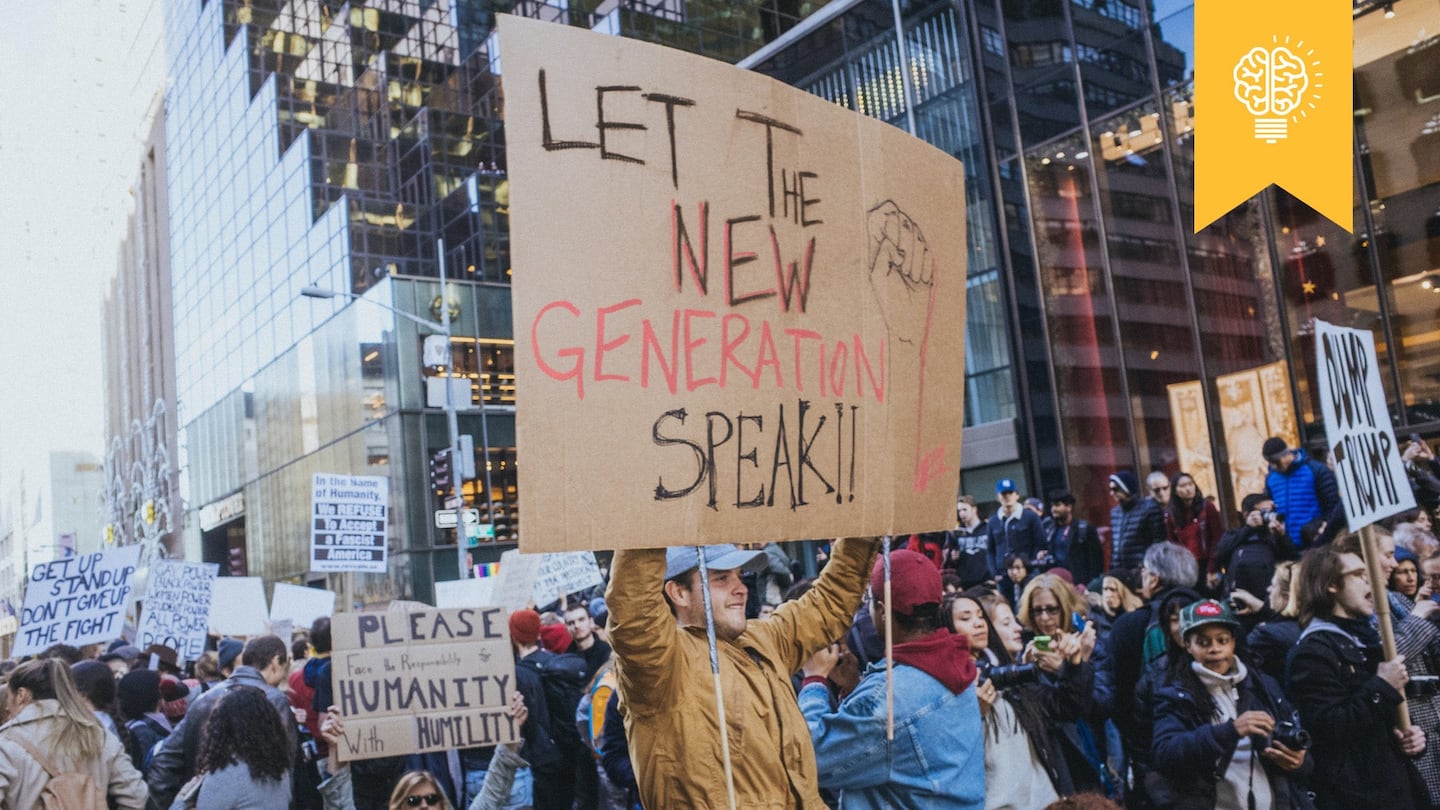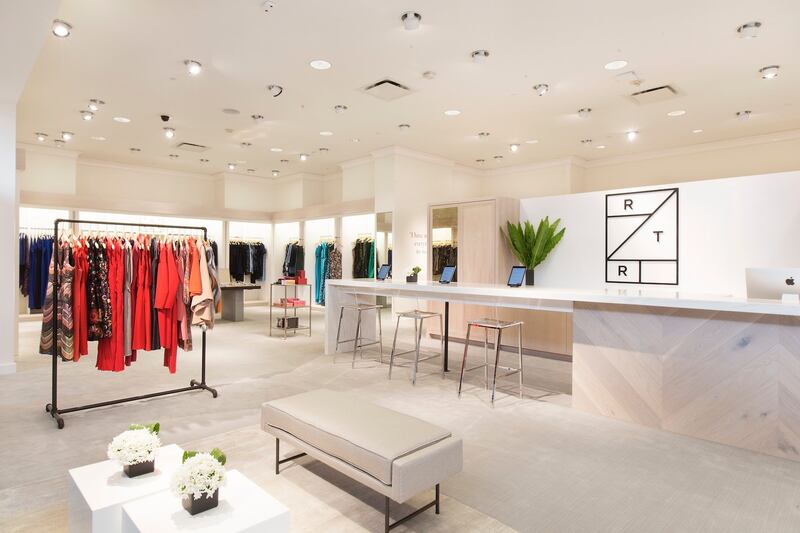
The Business of Fashion
Agenda-setting intelligence, analysis and advice for the global fashion community.

Agenda-setting intelligence, analysis and advice for the global fashion community.

Hello BoF Professionals, your exclusive weekly briefing is ready.
On Thursday morning, just a little after 10am, the stretch of Fifth Avenue between 50th and 59th Streets in New York City was eerily quiet. Metal barricades lined the streets, while police officers huddled on corners. It looked as if the famous shopping corridor — which remains the world’s most expensive retail street, commanding average annual rents of $3,000 per square foot, according to a report released this week by Cushman Wakefield — had been prepped for the Macy’s Thanksgiving Day parade.
Instead, the security measures were put into place following Donald Trump’s surprise win in last week’s US presidential election. In recent days, Trump Tower — a mixed-use property that sits on Fifth Avenue, wedged between 56th and 57th Streets, and includes the divisive president-elect’s personal residence as well as office and retail space — has become a flashpoint, attracting anti-Trump protesters, journalists, tourists and others, majorly disrupting shopping as the holiday season approaches.
Stores in the immediate vicinity, including Gucci (which is housed in Trump Tower itself), Bergdorf Goodman, Tiffany & Co. and Valentino, have seen footfall taper off almost completely since late last week, as retailers gear up for the period between Thanksgiving and Christmas, the most important selling season of the year, which traditionally kicks off with Black Friday sales on November 25th.
ADVERTISEMENT
But the glitzy stores on Fifth Avenue have bigger challenges to address than Trump and his protesters. On Bergdorf Goodman’s fifth floor, contemporary brands are already marked down by up to 60 percent. Top customers at Barneys New York have been notified via text and email of a pre-sale, inviting them to put items aside for when the first round of discounts officially kick off next week. And in early November, Saks Fifth Avenue launched a “sneak peek” sale, offering discounts of 40 percent.
Indeed, while the discounting season in the US seems to start earlier and earlier each year as retailers struggle to attract consumers, the markdowns seem to be losing their appeal with shoppers who have become accustomed to holiday season sales. Black Friday discounts, once a sure way of boosting retail sales, have become less effective. In 2015, 74.2 million people shopped in the US on Black Friday, according to the National Retail Federation, the lowest number since 2011. The three-day Black Friday weekend saw a decrease too, with a 102 million shoppers participating in 2015 compared to 133.7 million in 2014.
And while a handful of luxury retailers have tried to control their reliance on discounting — a practice that is ultimately unhealthy for the industry, creating a race to the bottom and diminishing brand value, while making the path back to growth more difficult — consumers won’t settle for paying more. This is especially true given the simultaneous price inflation seen across the luxury goods sector and the proliferation of off-price retailers, which offer products at deep discounts.
This holiday season is unlikely to result in a fire sale like that of 2008, when, in the wake of the implosion of Lehman Brothers, luxury department stores in the US practically gave away their goods. But that fateful quarter did mark a significant shift in the way consumers think about the value of luxury goods and holiday shopping at large. And there’s little doubt that, this year, brands will be tested once again.
THE NEWS IN BRIEF
BUSINESS AND THE ECONOMY
Estée Lauder continues acquisition streak. In its biggest acquisition to date, Estée Lauder agreed to buy Too Faced for about $1.45 billion. The private equity firm General Atlantic LLC has held a majority stake in the millennial-targeted beauty brand since summer 2015, when it was valued at $500 million. Estée estimates Too Faced's sales will grow 70 percent to $270 million by the end of 2016, when the deal is expected to close. It's the latest in a series of acquisitions for the US beauty conglomerate, which missed its sales estimates this month due in part to decreased business from department stores.
American Apparel files for bankruptcy protection — again. Just eight months after emerging from court protection for the first time, the struggling American retailer filed for Chapter 11 bankruptcy protection for a second time. After the filing, Gildan Activewear Inc. agreed to buy the brand's intellectual property rights for about $66 million. Last week, the company announced the closure of 13 UK stores and some of its European operations, as rumours of a pending sale intensified.
ADVERTISEMENT
Hugo Boss cancelling New York women's show. The German brand is prioritising its menswear collection and will not present Jason Wu's latest collection at New York Fashion Week in February. The company will fold Boss Orange and Boss Green into the main Boss line, which will sit alongside the slightly lower-priced Hugo line. The changes are part of chief executive Mark Langer's ongoing efforts to regain profits by shutting down stores, expanding online channels and focusing on casualwear and business clothes. The company expects to return to growth in 2018.
New Balance struggles to distance itself from white supremacists. A neo-Nazi blogger endorsed New Balance as "the official shoes of white people" over the weekend, creating a PR nightmare for the privately-held company. The support of white supremacists came after a New Balance representative spoke positively of President-elect Donald Trump's opposition to the Trans-Pacific Partnership. "New Balance does not tolerate bigotry or hate in any form," the company said in a statement. "We have been and always will be committed to manufacturing in the United States."
Richemont plans more cutbacks. The Swiss luxury conglomerate will cut more than 200 watchmaking jobs as it continues to scale back its business in the face of declining profits. Chairman Johann Rupert previously announced that he is abolishing the chief executive officer position. Richemont already cut 100 jobs earlier this year, mostly at Cartier, and a source says Piaget and Vacheron Constantin will see the biggest cuts in this latest round of layoffs.
China projects retail sales growth over next four years. The Commerce Ministry announced Wednesday that it predicts retail sales will reach about 48 trillion yuan ($6.99 trillion) by 2020. Overall retail sales will grow an average of 10 percent per year, while e-commerce will grow at an average of 15 percent per year. Beijing plans to make the economy more reliant on domestic consumption by pushing innovation in bricks-and-mortar businesses and agriculture.
PEOPLE
DVF chief executive Paolo Riva departs. On Thursday, Diane von Furstenberg announced that CEO Riva has resigned after less than two years at the company, effective immediately. According to sources, the exit was Riva's decision and the company had no comment regarding immediate plans to replace his role. The change in leadership comes at a pivotal point for the company: the newly appointed chief creative officer Jonathan Saunders presented his first collection in September.
Salvatore Ferragamo appoints two more design directors. Chief executive Eraldo Poletto has hired Fulvio Rigoni and Guillaume Meilland as design directors of women's and menswear, respectively. They join Paul Andrew, who was hired in September as women's footwear design director. Ready-to-wear accounted for only 6.2 percent of Ferragamo's sales in the first nine months of 2016, but Poletto says it remains a priority. The hirings come at a troubled time for Ferragamo: sales declined 6.2 percent in the most recent quarter.
Gosha Rubchinskiy to show in Kaliningrad. For the first time since he debuted his line in Moscow in 2009, Comme des Garçons-backed designer Gosha Rubchinskiy will stage a runway show in his native country. Since 2014, he has presented collections in Paris and, most recently, in Florence as part of Pitti Uomo. The January show will take place in Kaliningrad, the capital of a Russian exclave of the same name.
ADVERTISEMENT
TECHNOLOGY

Rent the Runway's space at Neiman Marcus in San Francisco store | Source: Courtesy
Rent the Runway partners with Neiman Marcus for in-store rentals. Rent the Runway is opening its first 3,000-square-foot in-store boutique inside Neiman Marcus in San Francisco, featuring clothing and accessories for rent. The move comes after a tough quarter for the American luxury behemoth, which posted a loss of $407.2 million and is looking for new ways to increase foot traffic to its stores and appeal to younger shoppers. Rent the Runway, meanwhile, has struggled to convince brands that rentals do not replace purchases and, often, can often help to introduce labels to shoppers for the first time.
Snapchat files for an IPO. Following reports last month that the mobile messaging app was preparing for an initial public offering, sources confirmed to Reuters that Snapchat filed before the election on November 8. The venture-backed company is valued between $20 billion and $25 billion, and its IPO will likely be the largest since Alibaba's in 2014 and the largest US tech IPO since Facebook's in 2012. The app is expected to reach 66.6 million users by next year.
Mohamed Alabbar leads $1 billion funding of new Middle East e-commerce venture. Alabbar — the business mogul who built the world's tallest building, the Dubai Mall and invested more than €100 million in Yoox Net-a-Porter — is leading a group of Gulf-area investors to fund a new e-commerce site with Saudi Arabia's sovereign wealth fund. Each will contribute $500 million to the venture, called Noon, which will go live in January and sell 20 million items to the region's upwardly mobile population. Alabbar says he expects Noon to be profitable in five years and expand to Egypt and Iraq by 2018.
Singles' Day breaks records in China. Over a billion purchases were made through Alibaba platforms on Singles' Day this year, representing a total of $17.8 billion in sales. The giant Chinese e-commerce company has turned the 24-hour holiday into a lucrative discount shopping event. Sales grew by 32 percent in 2016, and 82 percent of all orders were placed through mobile devices. Chinese shoppers are more likely to shop through mobile phones than shoppers in the US and UK, a new study shows: 90.4 percent of the country's respondents said they made a purchase through a smartphone in the past year.
TOP COMMENT OF THE WEEK
"Designers with more foresight and principles might choose not to dress her. It might make economical sense now but being on the wrong side of history will come back to bite them in the *ss later. Everyone should look to New Balance and think hard if short-term gains are really worth it, on both a business and human level." — Lala, regarding Melania Trump's future relationship with the fashion industry.
This is your weekly BoF Professional briefing. If you are not a BoF Professional member, sign up here for unlimited access to our agenda-setting journalism, exclusive briefings and other Professional-only benefits.
The former CFDA president sat down with BoF founder and editor-in-chief Imran Amed to discuss his remarkable life and career and how big business has changed the fashion industry.
Luxury brands need a broader pricing architecture that delivers meaningful value for all customers, writes Imran Amed.
Brands from Valentino to Prada and start-ups like Pulco Studios are vying to cash in on the racket sport’s aspirational aesthetic and affluent fanbase.
The fashion giant has been working with advisers to study possibilities for the Marc Jacobs brand after being approached by suitors.